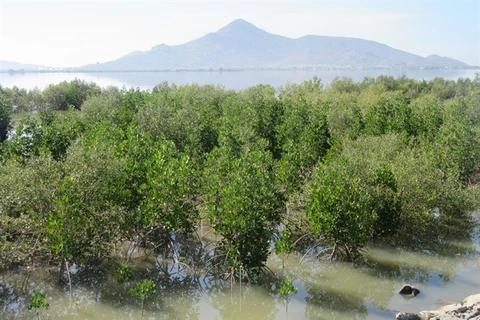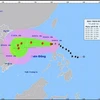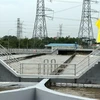Hanoi (VNA) – Southeast Asia must act now to prevent the region from losing 28 trillion USD in economic potential over the next 50 years due to unmitigated climate change, according to a new report from the Deloitte Economics Institute.
In its report “Southeast Asia’s turning point: How climate action can drive our economic future, the institute also reveals how the region could instead gain 12.5 trillion USD in economic value over the same period by limiting rising global temperatures and realizing its potential to export decarbonisation to the world.
Philip Yuen, CEO Deloitte Southeast Asia stressed that Southeast Asian countries must act quickly – within the next 10 years – to circumvent irreversible damage from climate change.
He said Southeast Asia’s economies have made strong commitments in this regard, but each country is at a different stage on the sustainability journey, owing to their unique geographic and economic circumstances.
In order to alter the trajectory, Southeast Asia must seize the opportunity to lead the charge and take climate action, Yuen said.
With no action taken on climate change, average global temperatures could rise by 3 degrees C or more by the end of this century. This will make it harder for people to live and work as sea levels rise, crop yields fall, infrastructure is damaged, and other challenges emerge.
Deloitte’s research also shows that if governments, businesses, and communities act boldly and rapidly in the next decade to address climate change, average global temperature rises can be limited to around 1.5 degrees C by 2050—a scenario that would minimize the impact of climate change for Southeast Asia and the rest of the world. At the same time, Southeast Asia can achieve significant economic growth by supplying the products and services, and by providing financing solutions to a world that will need to limit temperature increases./.
In its report “Southeast Asia’s turning point: How climate action can drive our economic future, the institute also reveals how the region could instead gain 12.5 trillion USD in economic value over the same period by limiting rising global temperatures and realizing its potential to export decarbonisation to the world.
Philip Yuen, CEO Deloitte Southeast Asia stressed that Southeast Asian countries must act quickly – within the next 10 years – to circumvent irreversible damage from climate change.
He said Southeast Asia’s economies have made strong commitments in this regard, but each country is at a different stage on the sustainability journey, owing to their unique geographic and economic circumstances.
In order to alter the trajectory, Southeast Asia must seize the opportunity to lead the charge and take climate action, Yuen said.
With no action taken on climate change, average global temperatures could rise by 3 degrees C or more by the end of this century. This will make it harder for people to live and work as sea levels rise, crop yields fall, infrastructure is damaged, and other challenges emerge.
Deloitte’s research also shows that if governments, businesses, and communities act boldly and rapidly in the next decade to address climate change, average global temperature rises can be limited to around 1.5 degrees C by 2050—a scenario that would minimize the impact of climate change for Southeast Asia and the rest of the world. At the same time, Southeast Asia can achieve significant economic growth by supplying the products and services, and by providing financing solutions to a world that will need to limit temperature increases./.
VNA
























